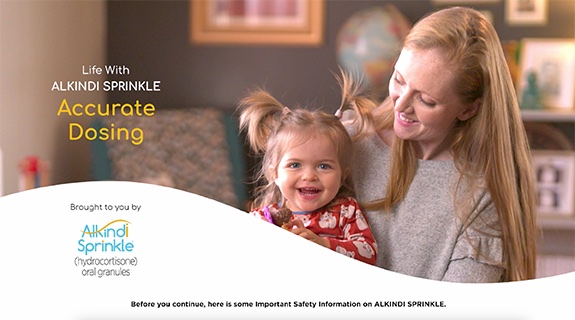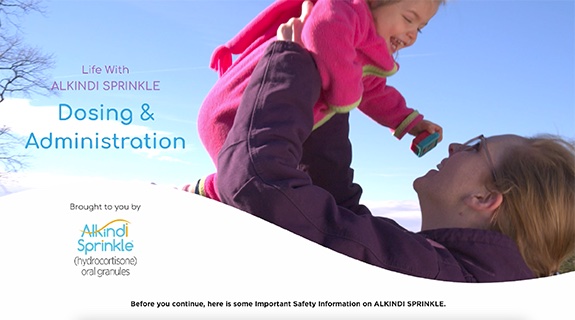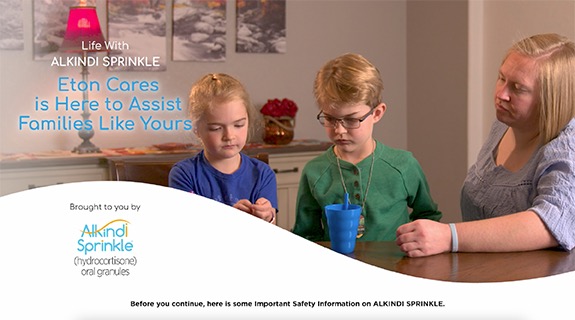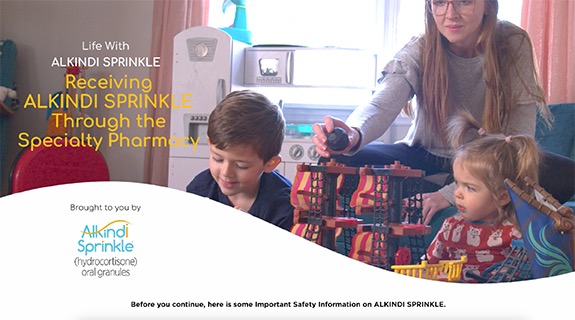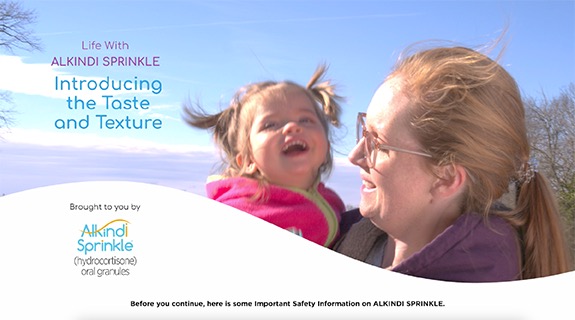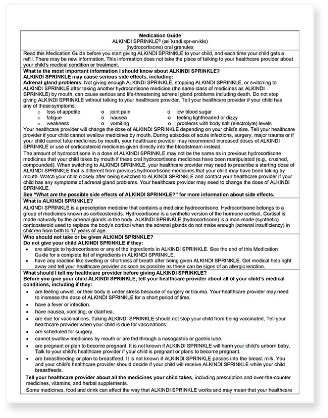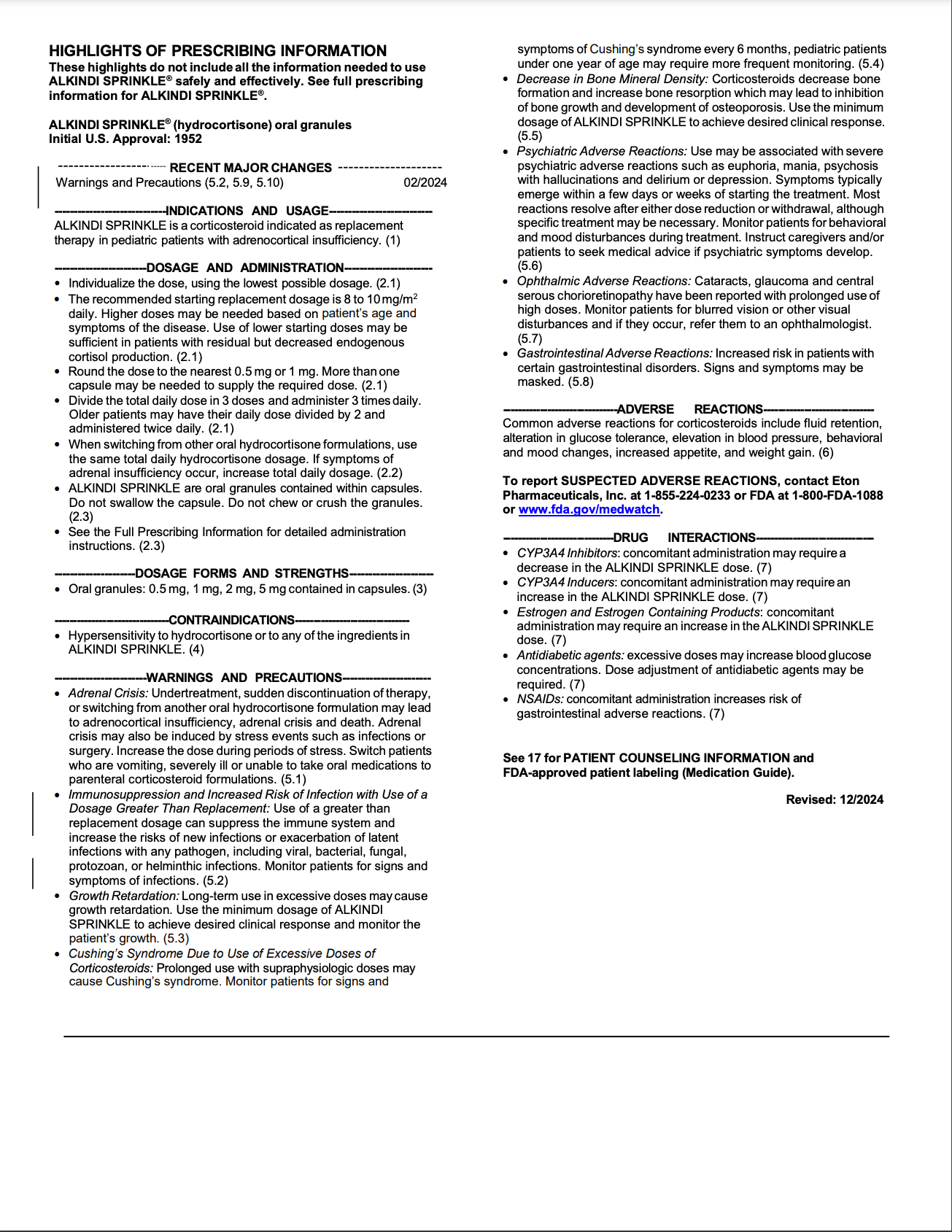ALKINDI SPRINKLE administration videos
These helpful videos will show you how to prepare and give ALKINDI SPRINKLE to children of different age groups.
Live Demonstration
Baby
Young Child
Older Child
Life with ALKINDI SPRINKLE
Meet actual families living with congenital adrenal hyperplasia (CAH) and see how treating their little ones with ALKINDI SPRINKLE is making a difference.
Accurate Dosing
Dosing & Administration
Eton Cares
Specialty Pharmacy
Texture & Taste
CTV Commercial
ALKINDI SPRINKLE on Facebook
Follow us on Facebook for more information and dosing tips.
Watch Helpful Videos on YouTube
Watch these short videos of actual families living with and managing adrenal insufficiency.
Resources for your treatment journey
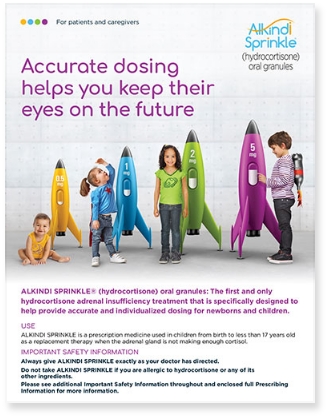
Caregiver Information
Download this brief and informative brochure packed with useful information on ALKINDI SPRINKLE.
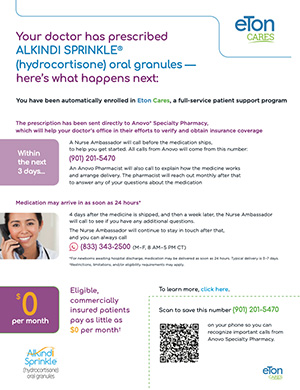
Eton Cares
Get this quick reference guide to access Eton Cares services and suggested steps to treatment success.
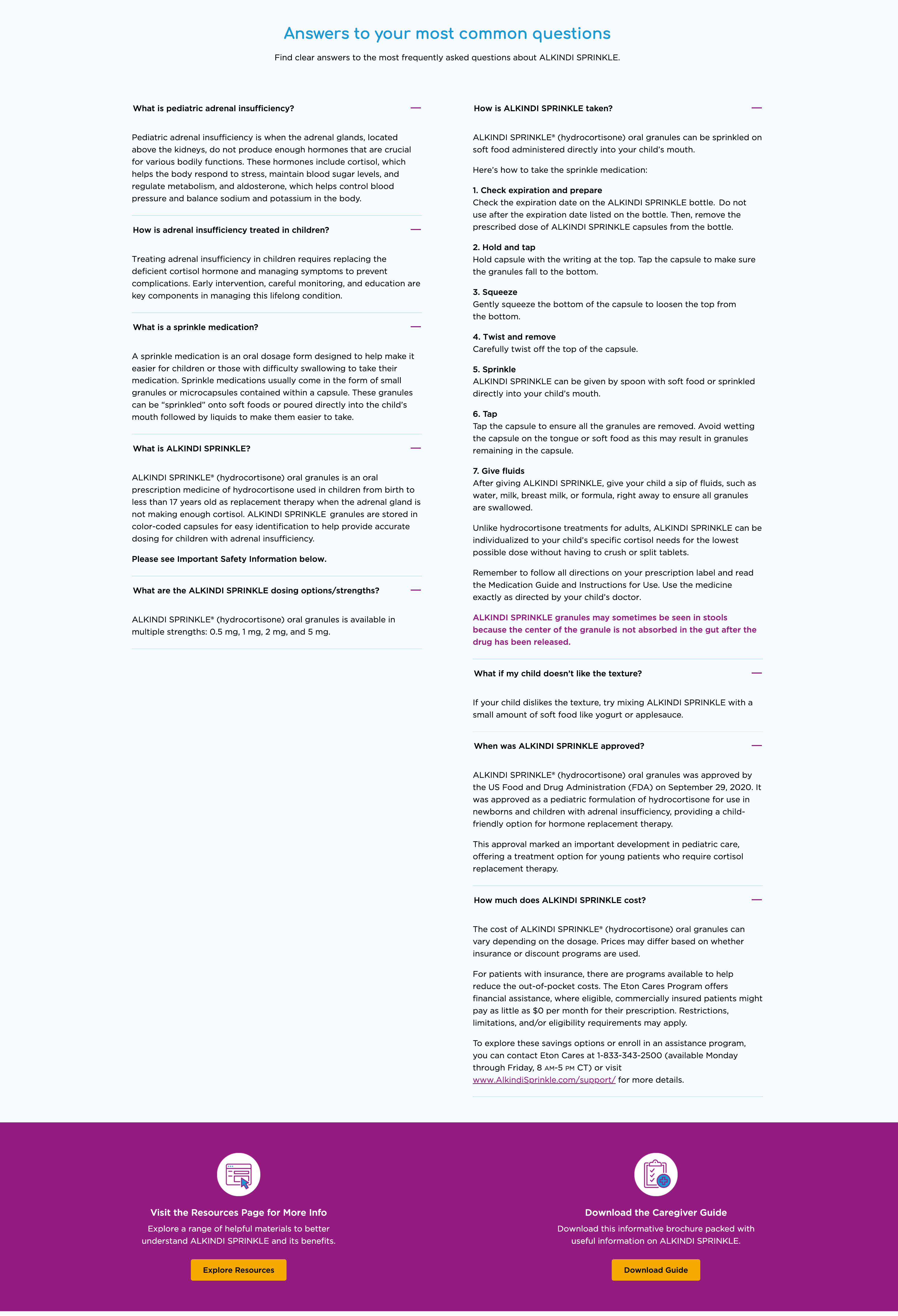
Frequently Asked Questions
Find clear answers to the most frequently asked questions about ALKINDI SPRINKLE.
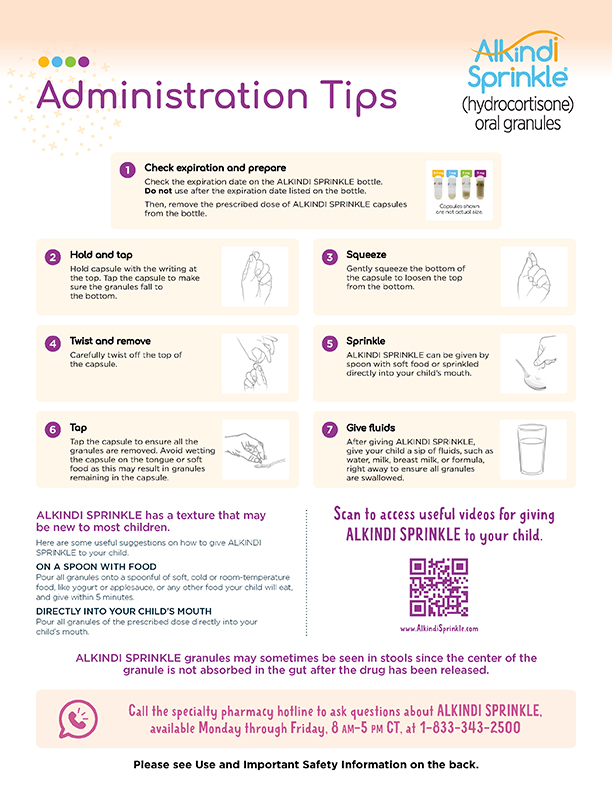
Tips for administration
Get started with accurate dosing today! Download this useful chart for giving ALKINDI SPRINKLE to your child.
ALKINDI SPRINKLE Medication Guide and Instructions for Use
A guide to explain how ALKINDI SPRINKLE works, how to give it to your child, and potential side effects.
ALKINDI SPRINKLE Prescribing Information
A comprehensive document highlighting the full Important Safety Information for ALKINDI SPRINKLE and how treat children with adrenal insufficiency.





